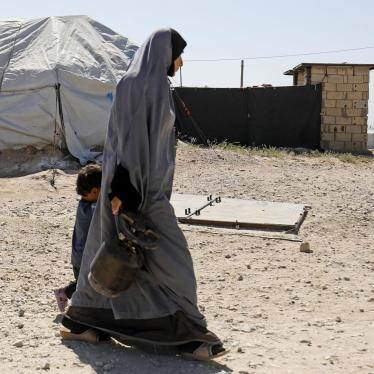For years, the United States has held the dubious distinction of incarcerating more people and at a higher rate than any other peacetime nation in the world. Yet its appalling addiction to incarceration continues. According to statistics released today by the federal Bureau of Justice Statistics (Prisoners in 2005), the number of US residents behind bars has now reached more than 2.3 million. The rate of incarceration has risen to 491 sentenced inmates per 100,000 US residents, up from 411 a decade ago. Four states – Louisiana, Texas, Mississippi and Oklahoma – have incarceration rates of more than 650 per 100,000, with Louisiana soaring above all other states with the astonishing rate of 797.
With violent crime rates continuing their decade-long decline, the United States should be able to reduce its prison population. But the still-growing number of men and women behind bars attests to criminal justice policies – including mandatory minimum sentences, three strikes laws, and reduced options for parole – that favor incarceration over alternative sanctions, even for low-level and nonviolent crimes. According to the Bureau of Justice Statistics (BJS) data, 53 percent of all state and federal prisoners are incarcerated for nonviolent crimes. Indeed, an estimated 337,872 men and women are serving state or federal prison sentences because of drug convictions, most of whom are low-level offenders. .
Human Rights Watch believes the extraordinary rate of incarceration in the United States wreaks havoc on individuals, families and communities, and saps the strength of the nation as a whole. Prison is a legitimate criminal sanction – but it should be used sensibly, justly and parsimoniously, with due regard for the principles of proportionality and respect for human dignity required by international human rights principles. The direct and collateral consequences of imprisonment may be acceptable when violent offenders are put behind bars, but they are hard to justify for nonviolent low-level offenders.
The latest BJS data also reveal that the burdens of incarceration continue to fall disproportionately on blacks and Hispanics, who constitute some 60 percent of all state and federal prisoners, although only 27.4 percent of the US adult population. The rate of incarceration of black men (3,145 in 100,00) is more than 6.6 times that of white men (471); for Hispanic men, the rate (1,244) is two and a half times greater than for white men.
The “war on drugs” with its misguided and futile reliance on punitive measures to lower illegal drug use plays a major role in this racial disparity. Although in absolute numbers there are more white drug offenders than there are black, (see Human Rights Watch’s report, “Punishment and Prejudice: Racial Disparities in the War on Drugs”) the BJS data indicate that there are more than twice as many blacks (133,100) serving prison sentences for drug offenses than whites (64,800). The war on drugs also accounts for the growing number of women being sent to prison. An estimated three out of every 10 women serving sentences of one year or more have been convicted of drug offenses, compared to two in every 10 men.
Human Rights Watch urges US political leaders and the public to reassess the costs and benefits of relying heavily on incarceration to address nonviolent offenses, especially drug offenses. The extraordinary number of nonviolent offenders in prison bespeaks a nation determined to “send a message” about drugs and crime, regardless of whether prison is ineffective, cruel or unduly costly compared to other ways of responding to nonviolent offenses. Particularly with regard to drugs, it may be that the human, social and economic costs of the prison “cure” are worse than the “disease” itself. The states and the federal government should dismantle mandatory sentencing laws, restore judicial discretion in sentencing, increase the use of alternatives to incarceration, and devote more resources to drug- and alcohol-abuse treatment.








